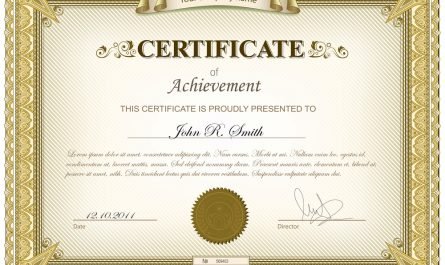Academic probation can last anywhere from one semester to a year or more, depending on the institution and the student’s degree. The majority of colleges in the US put students on academic probation for one semester after their first year.
Some schools prolong this probation for up to two semesters after a student’s 3rd year. You might also be placed in an at-risk program, a remedial course load designed to help struggling students return to good standing by providing personalized assistance and guidance from faculty members or tutors.
Probation is a warning sign, no matter how it is phrased. It’s a sign that you’re not doing as well as you should be, and it’s a warning that your continued poor performance will have consequences. If you fail a class while on probation, you may be forced to take additional courses or drop out of school altogether. If you are on academic probation, use the intervention to get back on track.
Typical academic probation conditions:
- A requirement to pass all classes with a C or higher;
Make sure you know the percentage for C requirements. For example, in some schools, C requirements are 74%-79% and a C- is 70%-73%. - A requirement to meet with an advisor or counselor at least once a week to check progress; and/or
- Additional classes designed to correct any issues that caused you to be on probation.
Students with low academic performance or non-academic issues are placed on academic probation. If you fall into this category, contact your school’s counselor or advisor immediately to help you get back on track with your studies.
What does academic probation entail?
Academic probation is imposed to protect the education and well-being of the student. If you’re placed on probation, it’s usually due to continuous failing classes.
The following is a list of popular reasons why a student is put on probation:
- Failure to meet grading requirements
- Failure to complete required college-level work
- Indications of plagiarizing, cheating, or other academic dishonesty
- Failing in the course’s comprehensive examination
- Transferring from one institution to another without adequately obtaining permission from both institutions
Is a student who is on academic probation still eligible for financial aid?
Some of the students on academic probation continue to receive federal and institutional aid. Certain schools, however, choose not to disburse any additional funds to a student who fails to maintain good standing academically. Check with your school’s financial aid office for details about your specific case.
What happens if a student on academic probation fails to meet the probation requirements?
The dean of student affairs will send you a letter indicating that you have failed to meet the conditions imposed on your academic probation. If you continue to maintain low grades, you will likely be required to take more than 12 college-level credits during your junior or senior year.
What happens if a student on academic probation receives an F grade or does not meet the conditions imposed on probation?
Failure to maintain a C average and/or complete the required coursework within the time limit imposed on them will be subject to more severe consequences, including being dismissed from school, having their admission status revoked, or having their financial aid withdrawn.
Does a student on academic probation return to good standing after completing their probationary period?
Students can return to good standing if they complete a certain amount of coursework and maintain an acceptable grade point average. A GPA of 2.0 grade or B average is required for most probationary students to be eligible to avoid dismissal. Take this into consideration to avoid any serious consequences.
What happens to students who do not make satisfactory academic progress?
There may be more serious consequences for students who fail to meet academic standards. For these students, additional courses will be required to reduce the number of credits they can earn toward their degree program. They may also have their financial aid cut or terminated.
What are the ramifications of a student on academic probation failing to complete their courses?
Students who fail to meet the conditions imposed on them will be dismissed. Students who have not made satisfactory academic progress throughout their probationary period may be required to take additional courses. These changes may decrease the number of credits they can complete for their degree program and reduce or stop their financial aid.
What is the purpose of a suspension for a student who has failed to make satisfactory academic progress?
A student who hasn’t made enough academic progress in school may be suspended. The student is usually required to complete academic probation, which means that they must meet with an advisor or counselor.
In addition, they are usually required to take additional courses and meet with their advisor or counselor weekly until they have completed at least 24 credits. During that time, the student cannot register for classes or receive financial aid.
What is the purpose of dismissal?
Dismissal means that a student has been suspended from their school. The student is usually required to complete academic probation, which means that they must meet with an advisor or counselor. In addition, they are usually required to take additional courses and meet with their advisor or counselor weekly until they have completed at least 24 credits. They will not be allowed to register for classes or receive financial aid.
What are the consequences for a student who was dismissed or suspended?
Students dismissed or suspended are not allowed to register for classes, receive financial aid, or continue their academic progress. Students who have been dismissed may be required to log into their account and return any financial aid they have received.
Their financial aid may also be reduced or discontinued. Students on suspension for more than one academic term, or if they have been suspended more than twice in a single academic term, may be required to repay all or part of their federal aid.
(Additional courses and weekly meetings with an advisor or counselor may be required for students who have been suspended)
How are students who have been dismissed or suspended able to return to school?
Students who have been dismissed must contact the dean of students at their school and complete a “Return to Good Standing” form. Students who have been suspended must complete preferred placement activities. These activities include taking additional courses and meeting with their advisor or counselor weekly until they have completed 24 credits.
In Conclusion
Academic probation can be a scary experience, but it doesn’t have to last forever. Most students can get off of academic probation within one semester. You can start working on things to make the process go as smoothly as possible and quickly improve your chances of getting off probation. If you’re currently on academic probation or worried that you might end up there soon, reach out to your academic advisor for successful tips and strategies in passing your classes.
Check Out Our Recent Post Below




